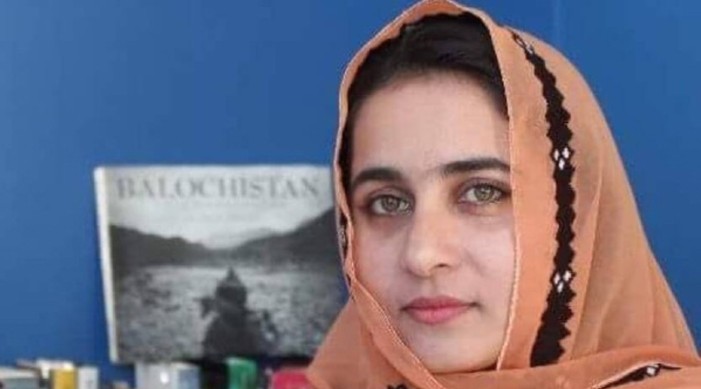On 20 December 2020, Karima Mehrab, also known as Karima Baloch, went for a walk and never came back. After her family reported her missing, she was found dead in a body of water near Lake Ontario. While the Canadian authorities suspect suicide her family believe that she was targeted by Pakistani agents because of her human rights work.
Karima Baloch, 37, was granted asylum in Canada in 2016 after her work as a human rights activist in the troubled Pakistan state of Balochistan had led to her being followed and threatened by the authorities. The first chair of the Baloch Students organisation (BSO-Azad), a political student organisation, she had been advocating for the rights of those in a region home to a long-running insurgency movement, and raising the ongoing issue of enforced disappearances. When she was included in the BBC’s 100 most inspirational and influential women of 2016 for her work in human rights she said, «I haven’t sought asylum to protect my life. I am here to tell the world about the current situation in Balochistan. When we saw that the world is not coming towards us, isn’t listening to us, we decided to go towards it. To tell them what is happening to us back home. I believe it is my responsibility.»
According to Karima’s sister Mahganj, her uncle was abducted while Karima was in Canada and the family received a message demanding that Karima stop her activism. But Karima refused. Her uncle’s body was returned to the family the day Karima appeared before a judge in Canada to request asylum.
Karima was aware that she was being watched. One day she received a phone call telling her to return to Pakistan. The person on the phone described in detail a trip she had made with her brother Sameer’s three-year-old son to the local park in Toronto. «It looks like you are enjoying your life,» the person said. One week before her death Karima had received a phone threat telling her that she would receive a surprise before Christmas that would change her life.
Karima’s husband Hammal Haider, also a human rights defender, has said that in the months before Karima’s death he had received multiple online threats telling him that his wife and brothers could also be targeted.
In April 2020, the body of Karima’s cousin, exiled journalist and human rights defender Sajid Hussain, was found in a lake in Sweden, also an apparent suicide. In neither case was there any background suggesting depression or suicidal ideation. But journalists in Pakistan are the target of both state and non-state actors. On 5 September 2020, television presenter and human rights defender Shaheena Shaheen, was shot dead, allegedly by her husband, who objected to her high profile and her refusal to give up her human rights work.
These killings are part of a pattern of harassment and intimidation of human rights defenders in exile, suggesting the involvement of Pakistani state agents. Pakistan is one of the world’s most dangerous countries for press freedom and journalists, with it ranking at 142 out of 180 countries in RSF’s 2019 World Press Freedom Index. Threats, intimidation and harassment against human rights defenders by Pakistani authorities is unfortunately not limited to those living within its borders. Exiled journalists and human rights defenders have suffered direct intimidation and also threats against their families in Pakistan. In July 2021 the Metropolitan Police’s Counter Terrorism Unit charged a man named Mohammad Gohir Khan with plotting to assassinate prominent Pakistani blogger Waqas Ahmad Goraya. In addition, intelligence services in multiple countries have reported credible death threats against exiled Pakistanis, who were critical of that country’s military, dating back to 2018. These include prominent figures such as scholar Ayesha Siddiqa and journalist Taha Siddiqui.
According to the Committee to Protect Journalists, more than 60 journalists have been killed in Pakistan in direct relation to their work.

